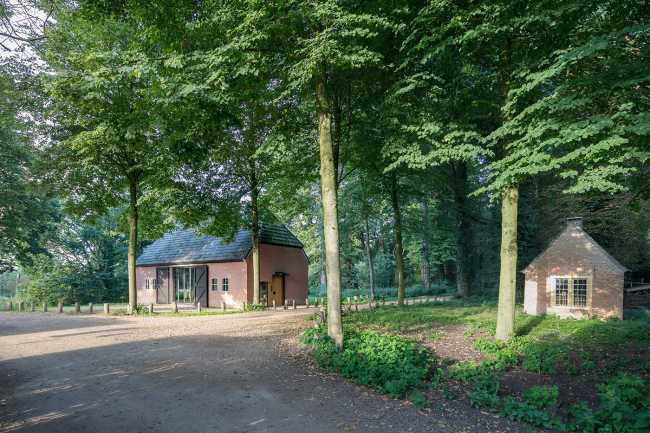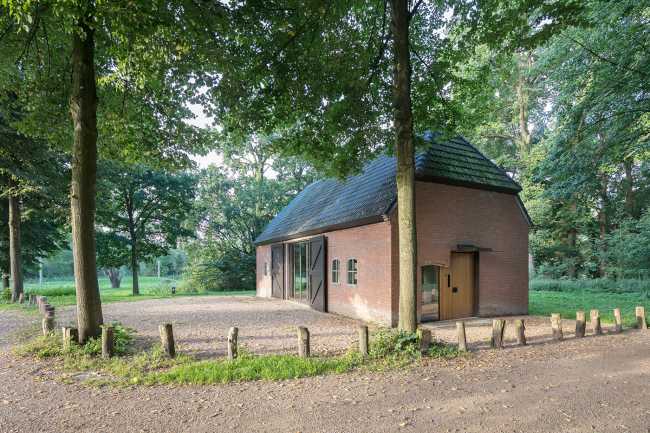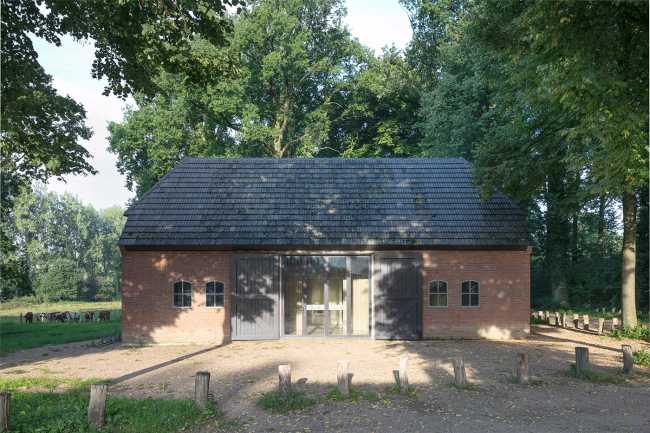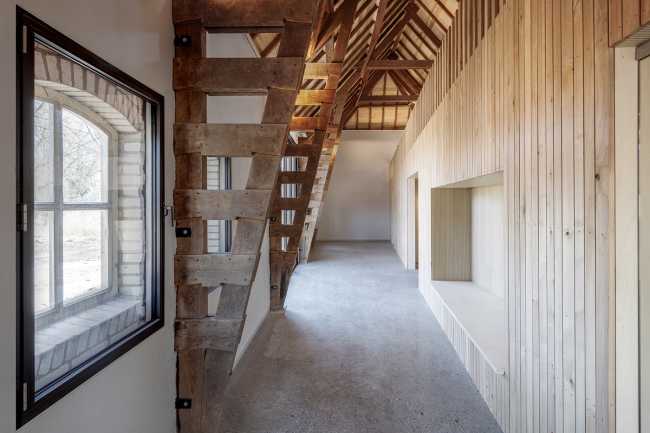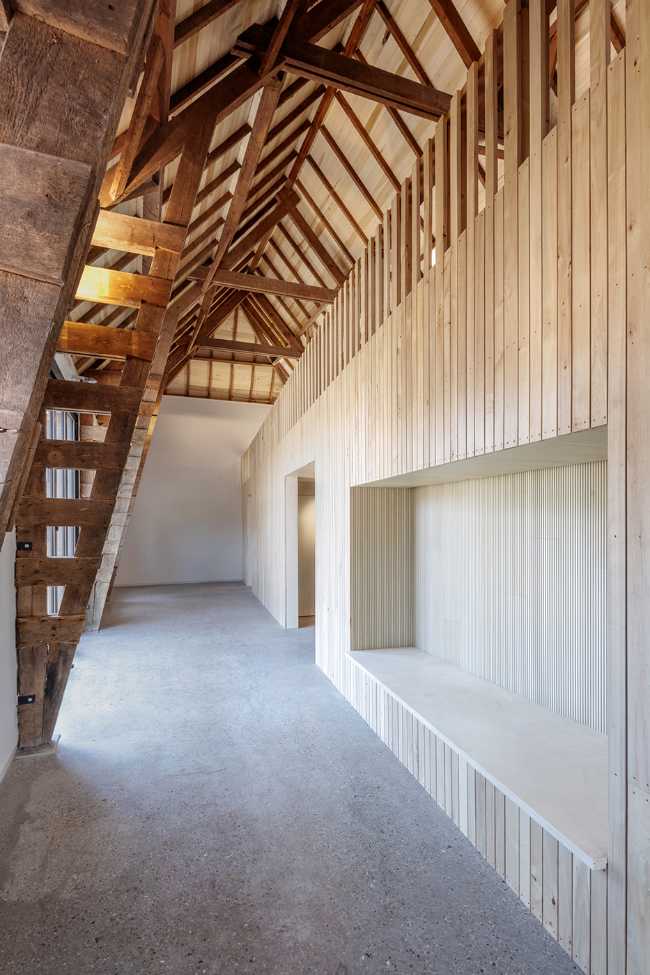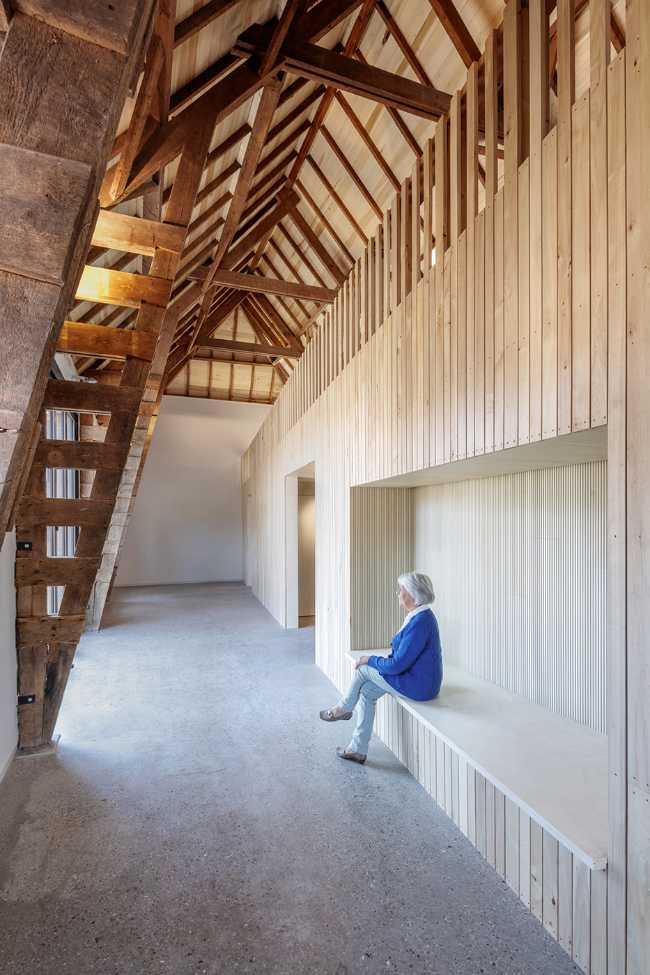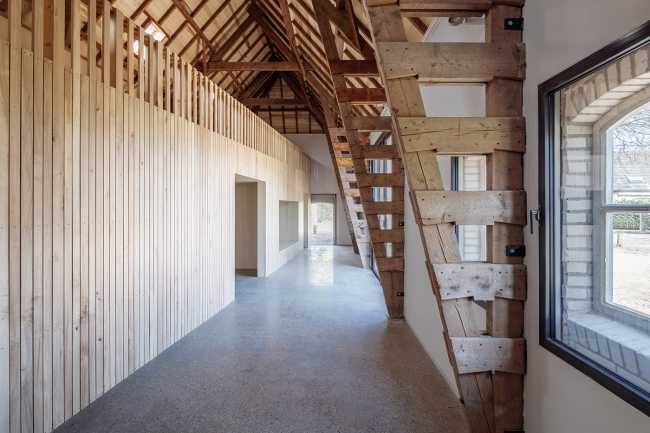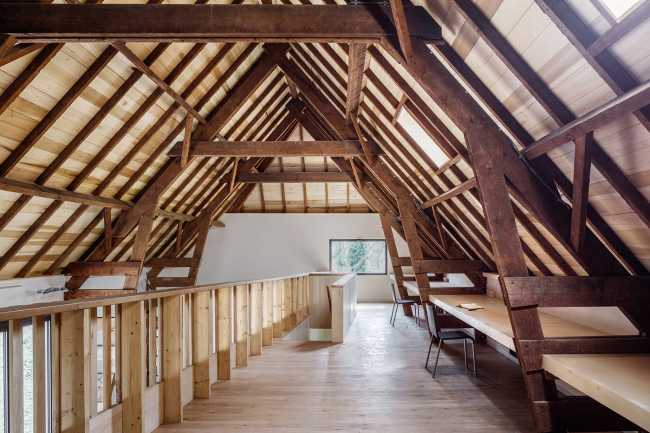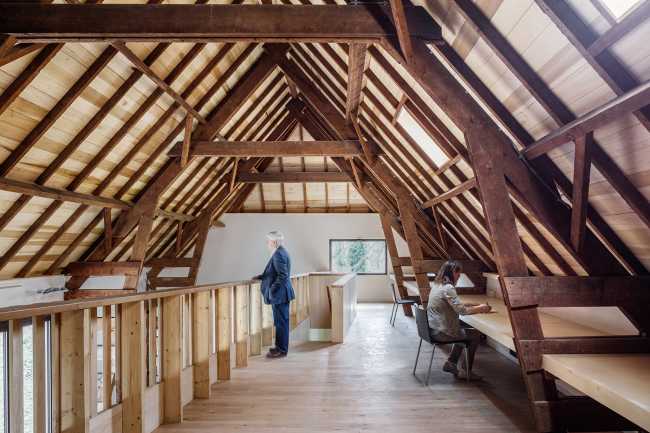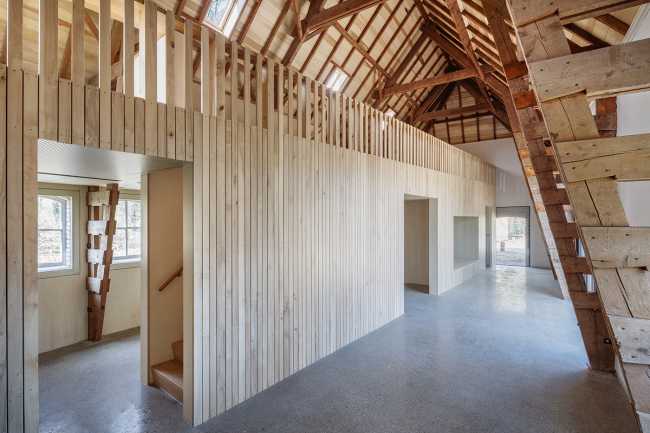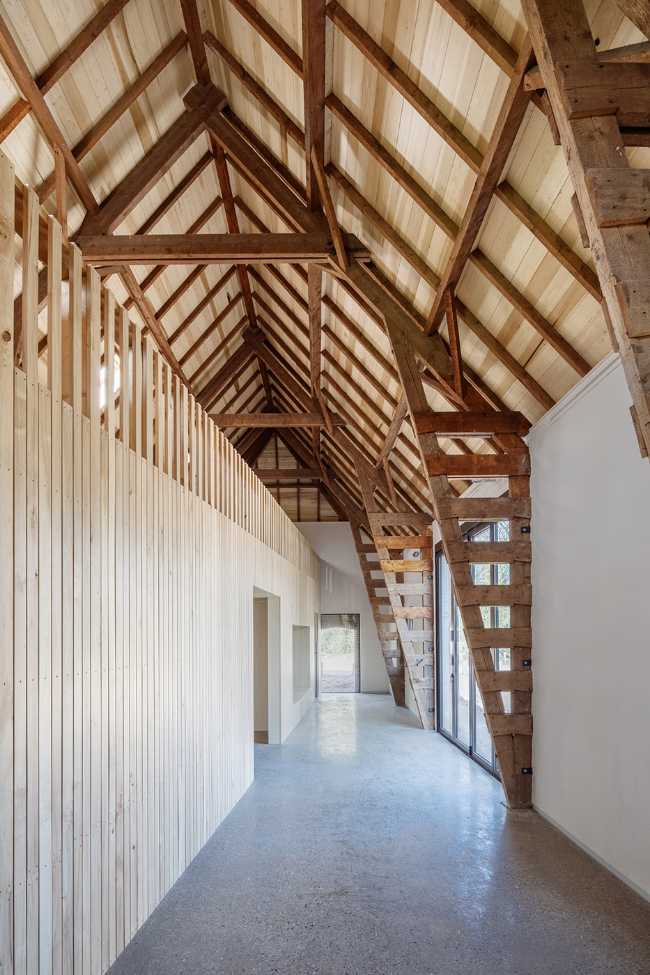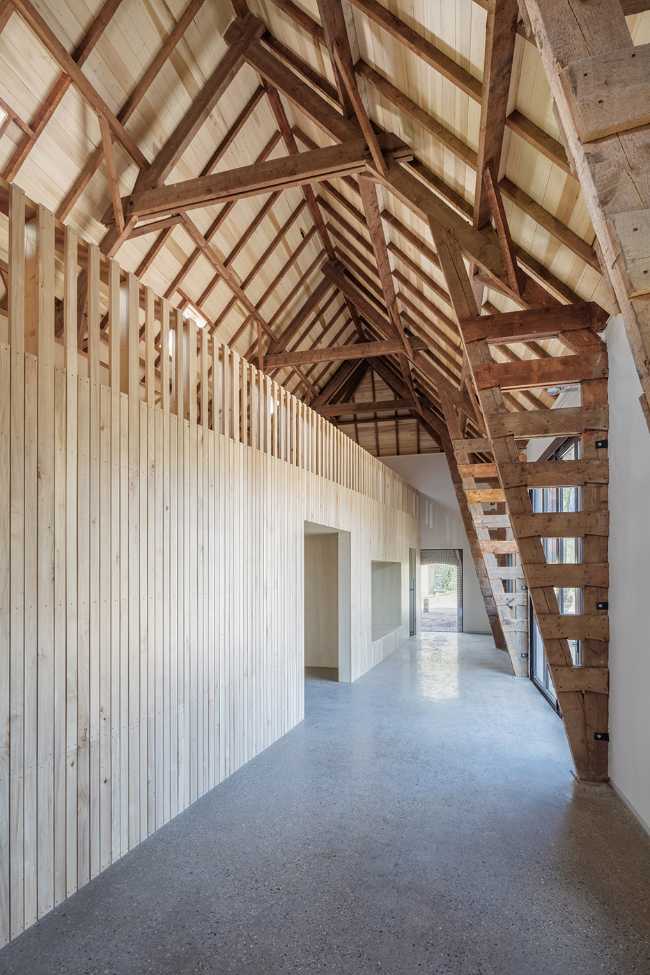Halder was a notable settlement in the Netherlands where pottery and metalwork were produced during Roman times. Next to the archaeological site, the Roman Museum is set up at the 17th-century Haanwiijk estate in the beautiful natural area on the Dommel River between Eindhoven and Hertogenbosch
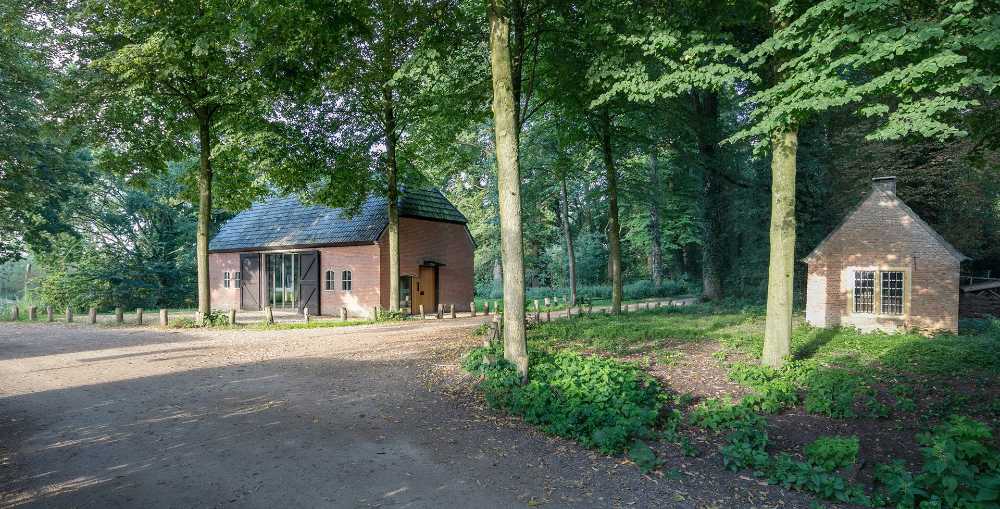

From barn of a historic estate to museum. Context-sensitive adaptive reuse project
Reset Architecture transforms a barn on a historic estate into the Halder Roman Museum housing archaeological artifacts, whose adaptive re-use architecture doesn't react to history in a nostalgic or thematic way, but uses a more context-sensitive approach
- #Europe
- #Netherlands
- #Building recovery
- #Museum
- #Wood
- #Brick
- #Restyling
- #Architectures
- #Renovation

A series of woods, fields and lanes provide a peaceful country atmosphere away from the urban surroundings and the new museum accentuates the social value and historical significance of the site. The barn is transformed through a simple architectural approach: old and new merge, but are still visually present

The ground floor is divided into reception and exhibition spaces, the second floor is used as a studio for archaeological research. The new wooden volume is oblique to the floor, creating a striking spatial effect, an optical effect further enhanced by a sloping line in the railing that helps balance the perception of perspective
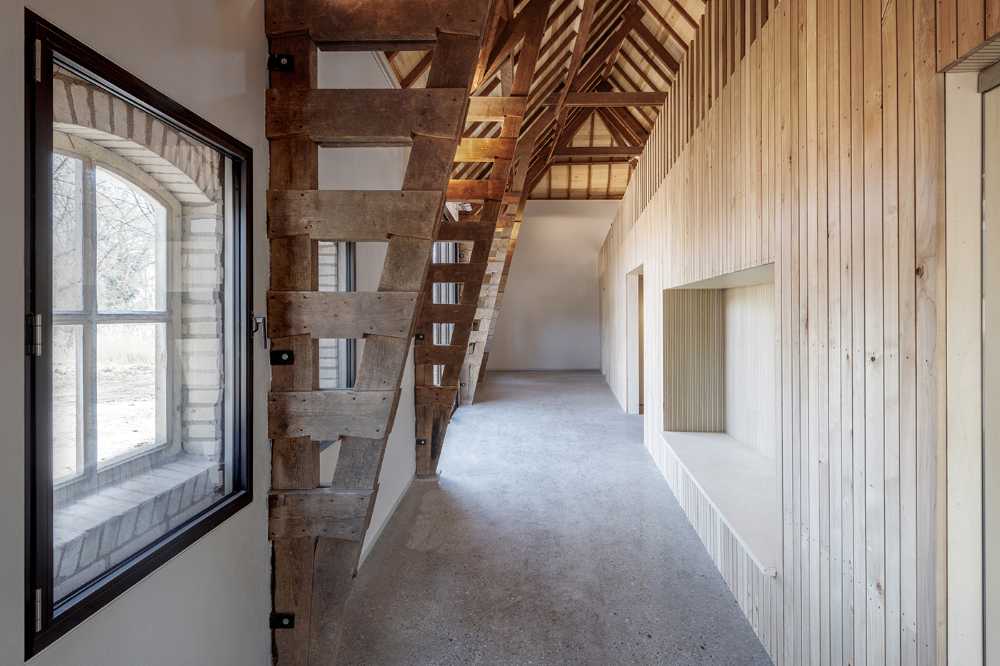
Exterior changes to the barn are limited: with the exception of the signalized entrance, the rest of the barn remains intact. The most dominant new element is the delicate wood-finished wall. The poplar wood slats in three dimensions are arranged in a continuous rhythm, so that the vertical structure supporting the railing remains out of sight
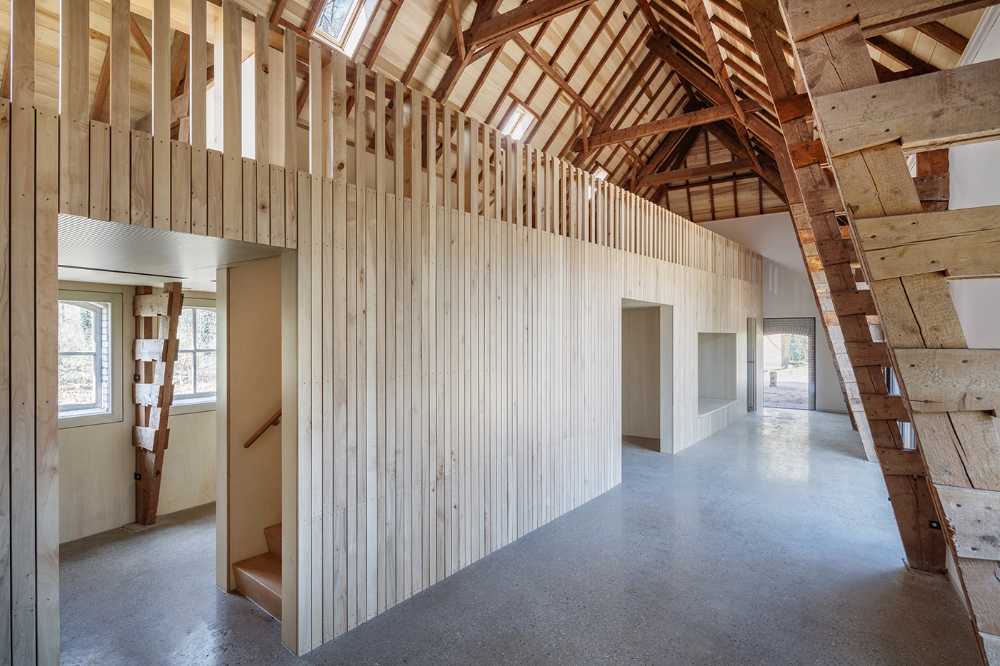
Most of the materials are organically produced. The barn is insulated with flax in wood framed walls finished with clay plaster. However, the interior does not come across as distinctive eco-architecture. The interior is a quiet and elegant backdrop for the exhibition and a regular continuous factor of the outdoor landscape
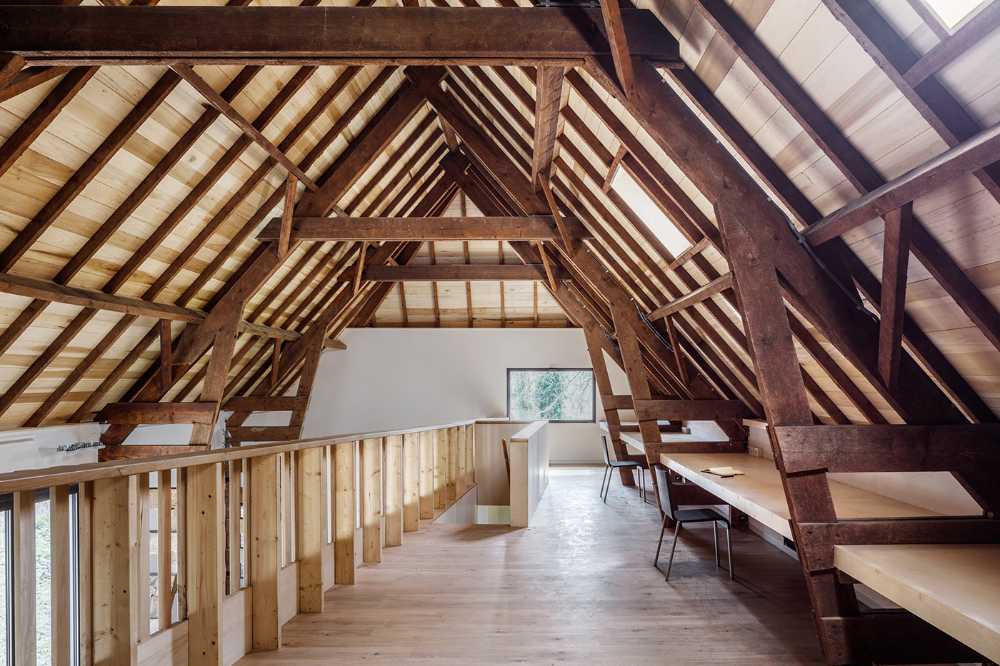
Gallery
Photo credits
Top image, content and gallery images: Stijn Poelstra

